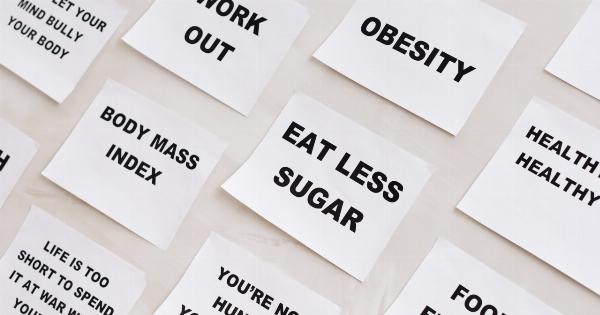Clean Monday, also known as Kathara Deftera, is a significant day in the Eastern Orthodox Christian calendar. It marks the beginning of Great Lent, a period of fasting and repentance leading up to Easter.
Clean Monday falls on the seventh Monday before Easter Sunday, which varies each year based on the lunar calendar.
The Tradition of Fasting
Fasting is a central practice during Great Lent, and Clean Monday serves as a stark reminder of the upcoming 40-day period of abstinence. On this day, Orthodox Christians engage in a strict fast, abstaining from meat, dairy products, eggs, and oil.
Instead, they focus on consuming plant-based foods, including fruits, vegetables, grains, and legumes.
Counting Calories on Clean Monday
While Clean Monday is primarily a spiritual observance, it is not uncommon for individuals to also be conscious of their caloric intake during this time.
Many people view the Lenten period as an opportunity to cleanse their bodies and adopt healthier eating habits. Counting calories on Clean Monday can be a helpful way to ensure that one stays within the bounds of the fasting guidelines.
Fruits and Vegetables: Low-Calorie Options
Fruits and vegetables are excellent options for Clean Monday due to their low calorie content. These plant-based foods are nutrient-dense, providing essential vitamins, minerals, and fiber without adding excessive calories.
Some popular choices include leafy greens, cucumbers, bell peppers, tomatoes, berries, and citrus fruits.
Grains and Legumes: A Satiating Choice
Grains and legumes, such as rice, quinoa, lentils, and chickpeas, are also commonly consumed on Clean Monday. They offer a good source of carbohydrates, protein, and fiber, making them satiating and nourishing options.
It’s important to remember that while they are nutritious, they also contribute to calorie intake, so portion control is key.
Plant-Based Protein Sources
For individuals who want to ensure they consume an adequate amount of protein during Clean Monday, there are several plant-based protein sources available. These include tofu, tempeh, seitan, edamame, and various types of beans.
While proteins play a vital role in the diet, it’s important to be mindful of portion sizes and avoid excessive consumption.
Calorie-Dense Ingredients to Avoid
While it’s essential to focus on nutrient-dense foods on Clean Monday, there are certain ingredients and preparations that can significantly increase calorie intake.
Avoiding deep-fried foods, sugary desserts, and high-fat dairy products is recommended. Opting for simple cooking techniques like steaming, grilling, and baking can help reduce the overall calorie content of meals.
The Importance of Balanced Meals
While counting calories on Clean Monday can be helpful, it’s crucial not to become overly fixated on numbers alone. Instead, aim for balanced meals that include a variety of food groups, ensuring you receive a broad spectrum of nutrients.
Combining fruits, vegetables, whole grains, and small portions of plant-based protein can create well-rounded and satisfying meals.
Listen to Your Body
While it’s important to be mindful of calories during Clean Monday, it’s equally crucial to listen to your body’s hunger and fullness cues. Pay attention to how certain foods make you feel and adjust your intake accordingly.
Remember, the purpose of Clean Monday is not solely caloric restriction but also spiritual reflection and renewal.
Benefits of the Clean Monday Fast
The Clean Monday fast offers numerous benefits beyond simply counting calories. By adhering to the fasting guidelines, individuals can experience improved digestion, increased energy levels, and a sense of clarity and focus.
The fast can also serve as a reset for one’s eating habits and foster a greater appreciation for the foods consumed.
Conclusion
Clean Monday is an important day for Eastern Orthodox Christians, symbolizing the start of Great Lent.
While the primary focus is on spiritual reflection and fasting, counting calories during this period can be beneficial for those who want to adopt a healthier approach to their eating habits. By incorporating nutrient-dense foods, practicing portion control, and listening to your body, you can navigate Clean Monday while being mindful of your caloric intake.




























